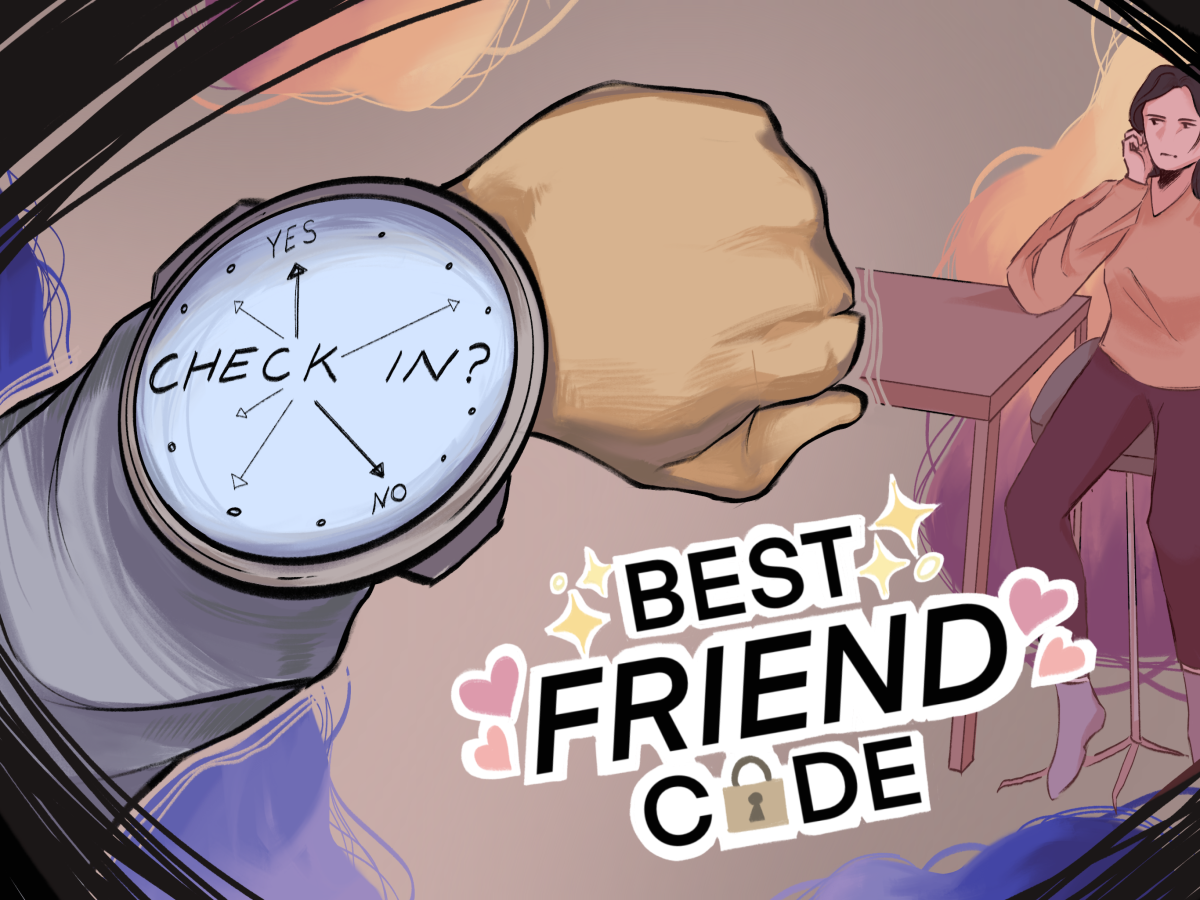I always want to support and show up for my friends. If I notice a friend feels down, my first instinct is to check in with them. Yet, sometimes, I also find myself wondering if that truly is the best thing that I can do to support them – whether it is checking in, or finding a small pick-me-up instead.
Maddie Tsang ’24 said supporting friends can come in many different forms.
“Sometimes, it’s the bigger things, like you go up to them [and] ask them, ‘How’s your day?’ or ‘How are you feeling?’ especially when you know it is a stressful or high-pressure time,” Tsang said. “Sometimes it’s smaller actions. If they’re absent from a class setting, send them a text— ‘Hey, are you okay?’—or if they ever need a little pick-me-up, maybe get them a drink from Peet’s.”
Julia Zeitlin ’24 said she expresses support through cheering on her friends: “We celebrate each other’s wins, we’re there for each other and we’re happy for each other.”
Sometimes, however, when we try to check in with friends, they might become defensive.
“Sometimes, if they’re being defensive, it’s because you’ve picked at something there that they thought that they were doing better at hiding,” Director of Counseling Wendy Cruz, said. “Now, somebody knows, and they’re not ready to have this conversation with you.”
That could lead us to think about how we check in with friends, as well as the best way to do so. It might lead us to wonder if it is possible to avoid a defensive response or an awkward dynamic after the conversation.
In actuality, there is really no one best way to check in with friends. The way we approach friends is situational.
But as a general guideline, Cruz said that it is always better to start casual and from a place of concern. Afterward, she advises, “Find a way to ask, ‘Hey, actually, I’ve noticed XYZ, and I’m wondering what’s that about?’ or, ‘Do you want to talk about this thing?’ I think you have to ease into it.”
Zeitlin said to reach out to friends in a low-stakes way.
“Sometimes, there can be this pressure to respond, even when you’re not okay,” she said. “In my messages, if I’m checking in on someone, I’ll say, ‘No need to respond to this’ and then tell them that I’m there for them and thinking about them.”
Sometimes, having these conversations can lead to awkward dynamics afterwards, which Cruz said is hard to avoid.
“It’s like, ‘Hey, are you gonna keep talking about this thing?’ or “Is it going to be the elephant in the room?’” Cruz said.
Oftentimes, we can also read too much into situations. This can lead us to check in with friends if they are just having an off day.
“It’s hard to tell, and I think even as you get older, it’s still the same. Sometimes, your immediate instinct is to go and comfort them and just be there with them,” Tsang said. “They’re not looking for you to solve the problem, and I think that’s still a way of showing support.”
Similarly, it can be hard to draw the line between giving friends some space and making sure to check in. Both actions are ways of showing support, but sometimes, if we notice a friend is feeling off, we aren’t sure the best way to continue forward.
“It’s hard because our natural inclination is that we want to be there for someone. If we’re not there for them, are we really helping them?” Tsang said. “Sometimes, it is just communication. It’s asking, ‘Do you need some space?’ If they need it, they’ll probably say yes.”
Tsang added, “Also, if you notice that they’re in a mood where they’re not interacting with a ton of people, that might be another sign. But, I think in general, no matter what, even if they are asking you for space, it’s still good to check in every once in a while, even if it is through text.”
Cruz said that it is important to check in with friends, even if awkward silences or defensive responses may drive us away from doing so.
“If you are concerned about a friend, don’t hesitate to ask them how they’re doing,” she said. “I think it’s important to go with your gut.”




